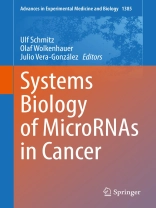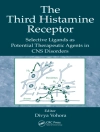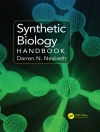This book provides an update on the latest development in the field of micro RNAs in cancer research with an emphasis on translational research.
Since the early 2000s, micro RNAs have been recognized as important and ubiquitous regulators of gene expression. Soon it became evident that their deregulation can cause human diseases including cancer. This book focuses on the emerging opportunities for the application of micro RNA research in clinical practice. In this context, computer models are presented that can help to identify novel biomarkers, e.g. in circulating micro RNAs, and tools that can help to design micro RNA-based therapeutic interventions. Other chapters evaluate the role of micro RNAs in immunotherapy, immune responses and drug resistance.
Covering key topics on micro RNAs in cancer research this book is a valuable resource for both emerging and established micro RNA researchers who want to explore the potential of micro RNAs as therapeutic targets or co-adjuvants in cancer therapies.
Innehållsförteckning
Chapter 1. The Role of Micro RNAs in Cancer Biology and Therapy from a Systems Biology Perspective.- Chapter 2. Circulating Micro RNAs as Cancer Biomarkers in Liquid Biopsies.- Chapter 3. Regulation of Immune Cells by Micro RNAs and Micro RNA-Based Cancer Immunotherapy.- Chapter 4. Machine-Learning-Based Methods and Best Practices of Micro RNA-Target Prediction and Validation.- Chapter 5. Turning Data to Knowledge: Online Tools, Databases and Resources in Micro RNA Research.- Chapter 6. Bioinformatics Methods for Modeling Micro RNA Regulatory Networks in Cancer.- Chapter 7. Analysis of the p53/Micro RNA Network in Cancer.- Chapter 8. Machine Learning Using Gene-Sets to Infer mi RNA Function.- Chapter 9. mi RNA:mi RNA Interactions: A Novel Mode of mi RNA Regulation and Its Effect on Disease.- Chapter 10. Clust MMRA v2: A Scalable Computational Pipeline for the Identification of Micro RNA Clusters Acting Cooperatively on Tumor Molecular Subgroups.- Chapter 11. 3D Modeling of Non-coding RNA Interactions.
Om författaren
Ulf Schmitz’s research focus is on RNA biology and systems medicine. He integrates in silico, in vitro and in vivo approaches in advanced interdisciplinary research. His team develops integrative systems medicine workflows along with tools and databases to identify and study interactions between RNAs and other molecules, mechanisms of gene regulation, and gene regulatory networks.
With the goal of achieving a deeper understanding of processes involved in disease emergence and progression, his projects focus on different cancer entities and possible avenues for therapeutic interventions and optimized treatment schedules.
Olaf Wolkenhauer’s research combines data-driven modelling with model-driven experimentation, using a wide range of approaches, including machine learning, statistics, systems theory, and stochastic processes. He has extensive experience in developing systems theoretic concepts and developing algorithms, workflows, standards and software tools that support the analysis data with applications in biomedicine. A specific interest is in understanding the functioning of cells within a tissue and how such whole-part relationships can be used to identify principles underlying tissue (mal)functioning.
Julio Vera-González is a physicist working in medical systems biology since 2005. His expertise is in mathematical modelling, bioinformatics and network biology. He applies multi-criteria decision algorithms to patient classification and therapy assessment. His primary interest is the role of (non-coding) RNA regulation in the interplay between cancer and the immune system, as well as its impact on (immuno)therapy.












